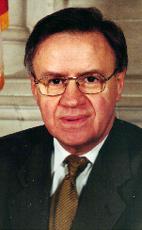Mr. Speaker, I listened to the speeches about the various systems, whether in the federal government or the Quebec government. When I was in the National Assembly, there was always a lot of criticism. Whatever system we have it will draw criticism.
Look at the situation in the United States and in most other countries. Stop any ten persons in the street and ask them, whether in Ontario or Quebec—not in the United States, but in Canada—if they think that our system to raise funds for political parties is honest, equitable and free from interference. Nine out of ten will ask you: Do you think I am naive? No one believes that the system works honestly. This is sad, but it is possible in a democracy.
Two or three years ago, I tabled a private member's bill based on a study of the financing of political parties in Canada, done by a New Brunswick University student working for his Ph.D. I got in touch with him and, together, we prepared something. The problem with my bill was probably its simplicity. I proposed to prohibit anyone—companies, unions, individuals—from contributing to political parties. It is up to us, the people, to give the various political parties the means to finance their activities. I have done some research with the Department of National Revenue and, considering what it is costing the government right now, it would be cheaper to pay the political parties directly according to a set formula.
I hope to introduce a similar bill again and I would like to ask the hon. member this question. Do you think that you and your colleagues could support a bill that said it is up to the government, that is the people, to finance political parties. No money from companies, no fundraisers.

